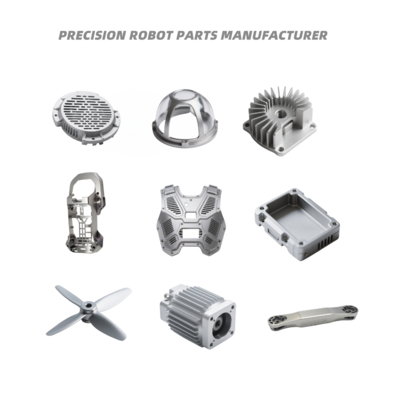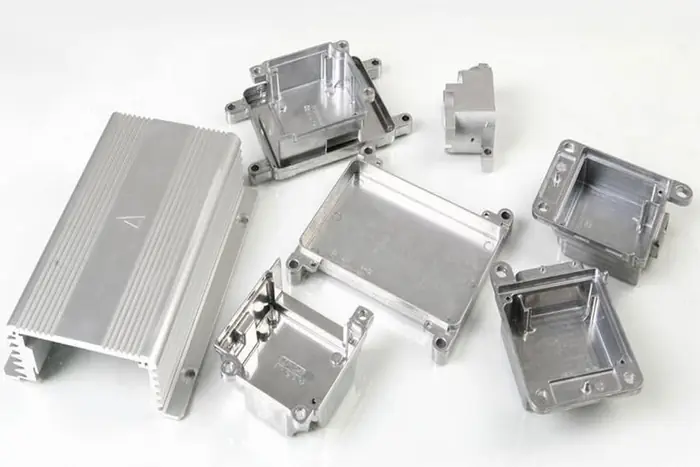The role of Precision aluminum casting in achieving accuracy
The Function of Light Weight Aluminum Foundries in Progressing Lightweight Production Solutions
Aluminum factories greatly add to the development of lightweight manufacturing services. Their innovative spreading modern technologies generate high-strength, light-weight parts necessary for markets like vehicle and aerospace. This development not just improves item efficiency but additionally advertises sustainability with using recycled materials. As these foundries adjust to arising technologies and practices, they lead the way for future developments in producing performance and ecological obligation. What lies ahead in this transformative journey?
The Advantages of Lightweight Materials in Manufacturing
As industries increasingly seek efficiency and sustainability, the adoption of lightweight materials in manufacturing has actually become an important technique - Aluminum Foundry. These products, especially light weight aluminum and compounds, provide numerous advantages that boost manufacturing procedures and product efficiency. Mainly, their reduced weight contributes to lower energy usage during transportation and operation, leading to substantial price savings
Additionally, lightweight materials promote the style of even more complex geometries, permitting for higher development in product growth. This adaptability commonly results in boosted functionality and performance, dealing with the evolving demands of modern-day customers.
In addition, the usage of lightweight products can improve the long life of products due to their resistance to deterioration and fatigue. This durability not just lowers upkeep prices however likewise supports sustainability initiatives, as longer-lasting items add to much less waste. To sum up, the advantages of light-weight products are pivotal in driving effectiveness, technology, and environmental responsibility in production.
Technologies in Aluminum Casting Technologies
Recent developments in aluminum spreading modern technologies are revolutionizing the production landscape, especially in the production of light-weight elements. Technologies such as high-pressure die spreading and vacuum cleaner die spreading have actually substantially boosted the accuracy and surface area finish of light weight aluminum components - Aluminum Casting Company. These methods permit the production of intricate geometries while decreasing material waste and enhancing mechanical properties

In addition, the implementation of real-time surveillance systems assures quality assurance throughout the spreading procedure, leading to even more regular item end results. Jointly, these technologies not only improve the efficiency of aluminum parts yet likewise sustain the market's shift towards even more lasting manufacturing practices.
Applications of Light Weight Aluminum Elements in Various Industries
While aluminum elements have actually long been used in numerous sectors, their versatility and light-weight residential properties proceed to drive innovative applications across fields such as automotive, aerospace, and construction. In the automobile market, light weight aluminum is progressively used for engine blocks, wheels, and body panels, enhancing fuel performance and performance. Aerospace makers take advantage of light weight aluminum for aircraft structures and components, maximizing its strength-to-weight proportion to enhance gas economic situation and haul capacity.
In the building field, light weight aluminum is favored for window frameworks, roofing, and architectural aspects, supplying resilience and resistance to corrosion while reducing overall building weight. Furthermore, the electric and electronic devices markets gain from aluminum's conductivity and lightweight nature, using it in circuitry, units, and warm sinks. These varied applications highlight the important duty of aluminum parts, which not just meet market needs yet additionally add to advancements in product design and capability across several areas.
Sustainability and Energy Performance in Light Weight Aluminum Foundries
The aluminum factory sector plays a critical function in advertising sustainability and power performance, particularly as demand for light-weight parts remains to expand across numerous sectors. Shops are increasingly adopting eco friendly methods, such as making use of recycled light weight aluminum, which substantially lowers energy intake and greenhouse gas emissions compared to main light weight aluminum manufacturing.
Improvements in casting modern technologies improve power efficiency by click to find out more maximizing the melting procedures and reducing waste. Strategies like die casting and investment casting enable specific material usage, reducing excess and scrap.
Additionally, numerous factories are purchasing renewable resource resources to power procedures, even more lowering their carbon impact. Carrying out energy monitoring systems enables factories to check and improve energy usage, guaranteeing they operate at peak effectiveness.

Future Trends in Lightweight Production Solutions
How will arising modern technologies shape the future of lightweight manufacturing solutions? Innovations such as innovative materials, automation, and additive manufacturing are readied to redefine production processes. The assimilation of clever manufacturing innovations, consisting of the Internet of Points (IoT) and expert system (AI), will certainly make it possible for real-time monitoring and optimization, improving effectiveness and lowering waste.

As sustainability continues to be a vital problem, lightweight options will significantly concentrate on recycling and recycling products, straightening with round economy principles. This advancement in lightweight manufacturing will not only improve product efficiency however also contribute to environmental goals, making sure that the industry stays affordable in a rapidly transforming market landscape.
Frequently Asked Concerns
How Do Aluminum Foundries Guarantee Quality Control in Production?
Light weight aluminum foundries assure quality assurance in manufacturing via rigorous screening, standardized treatments, and continuous surveillance - Aluminum Casting Company. They implement advanced modern technologies and skilled workers to maintain uniformity, minimize defects, and satisfy sector standards throughout the production process
What Are the Key Tests Dealt With by Light Weight Aluminum Foundries?
Light weight aluminum factories encounter difficulties such as rising and fall resources expenses, maintaining manufacturing efficiency, making certain consistent quality, adapting to technical innovations, and meeting ecological guidelines, every one of which impact their general operational efficiency and competitiveness in the market.
Just How Does Light Weight Aluminum Recycling Influence Foundry Procedures?
Aluminum recycling significantly boosts factory operations by decreasing basic material prices, lessening power intake, and lowering ecological impact. This sustainable practice enables foundries to improve efficiency while meeting raising need for lightweight, high-performance light weight aluminum items.
What Abilities Are Needed for Employees in Aluminum Foundries?
Employees in light weight aluminum shops call for skills in metallurgy, machining, quality assurance, and safety and security techniques. Effectiveness in operating equipment, recognizing alloy buildings, and problem-solving are additionally necessary for reliable manufacturing and keeping high security click here for more info requirements.
Just How Do Aluminum Foundries Manage Waste Management?
Aluminum factories manage waste with recycling scrap steel, utilizing efficient waste segregation methods, and sticking to environmental regulations. They try these out execute sustainable techniques to decrease land fill contributions, making sure that unsafe products are thrown away responsibly.
Light weight aluminum shops significantly contribute to the advancement of light-weight production services. Current improvements in aluminum spreading modern technologies are revolutionizing the manufacturing landscape, especially in the production of lightweight components. While light weight aluminum elements have actually long been used in numerous industries, their adaptability and light-weight properties proceed to drive innovative applications throughout markets such as automotive, aerospace, and building and construction. Additionally, the electrical and electronics sectors benefit from aluminum's conductivity and light-weight nature, utilizing it in wiring, units, and heat sinks. The light weight aluminum foundry industry plays a vital duty in promoting sustainability and power effectiveness, especially as need for lightweight components continues to expand across numerous fields.